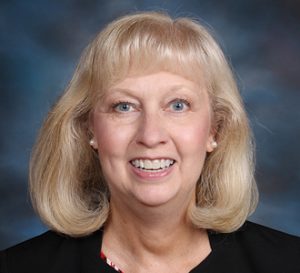Oppor discusses social and emotional learning
By Holly Neumann

When law enforcement is called to the Manawa School District, the incidents are often traced back to mental health or trauma issues.
The district is now working to create trauma-sensitive school.
This is part of its plan to address the mental health of the students.
“Along with the academic content, you also have to understand the social and emotional learning that needs to take place,” said District Administrator Melanie Oppor.
A team of teachers and principals are participating in an ongoing training at CESA 6 for social and emotional learning.
Upon completion of their studies, they share the strategies with all their colleagues after each session.
“Professional development is so important,” Oppor said. “We used to have professional development predominantly for teachers, but now we include everyone. Everyone plays an integral role in supporting our students. You never know who students are going to connect with.”
Oppor believes these trainings change the way people interact with one another.
“It is not just something you use at school,” she said. “These are strategies can be used to support our family, our friends and our co-workers.”
Through trauma-sensitive training, school staff learn to understand what is happening to someone and why they are responding the way they are.
Understanding trauma
Intensive trauma over a period of time may alter brain development, which can affect learning.
At the elementary level, teachers now have morning meetings with their students.
“Teachers spend a few minutes every day just checking in,” Oppor said. “If we know someone is coming into the day and they are going through a difficult time, we become aware of it. We can be sensitive to that and be supportive throughout the day.”
This does not excuse poor choices.
“It explains it,” she said. “Hopefully this training will help prevent things from happening in the future.”
Consequences will still be given.
“In addition to applying consequences, we need to break that cycle of behavior and provide support to help youth see that there is a different way,” she said. “If an individual has a trauma, we cannot fix or change that, but we can support them through it.”
The district has partnered with local law enforcement, physicians and others to provide wrap-around services.
“This is very important,” Oppor said. “We want to make sure our students get support in all of their environments and that we are all doing similar things.”
She said the community support has been amazing.
“People have really embraced this idea,” Oppor said. “Their willingness to work with the district has been wonderful.”
Everybody may be part of the solution to support the students and each other.
“Building relationships with students is so important,” Oppor said. “Just saying I believe in you, I support you and I will be there to help you fulfill your goals can make all the difference in the world.”
